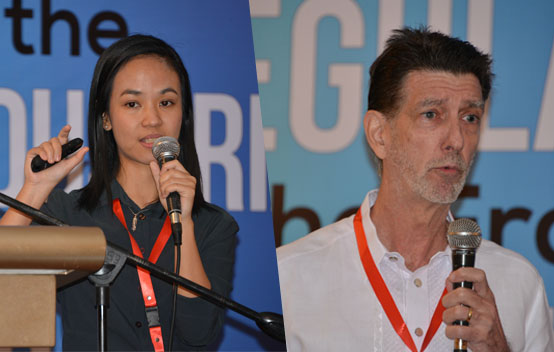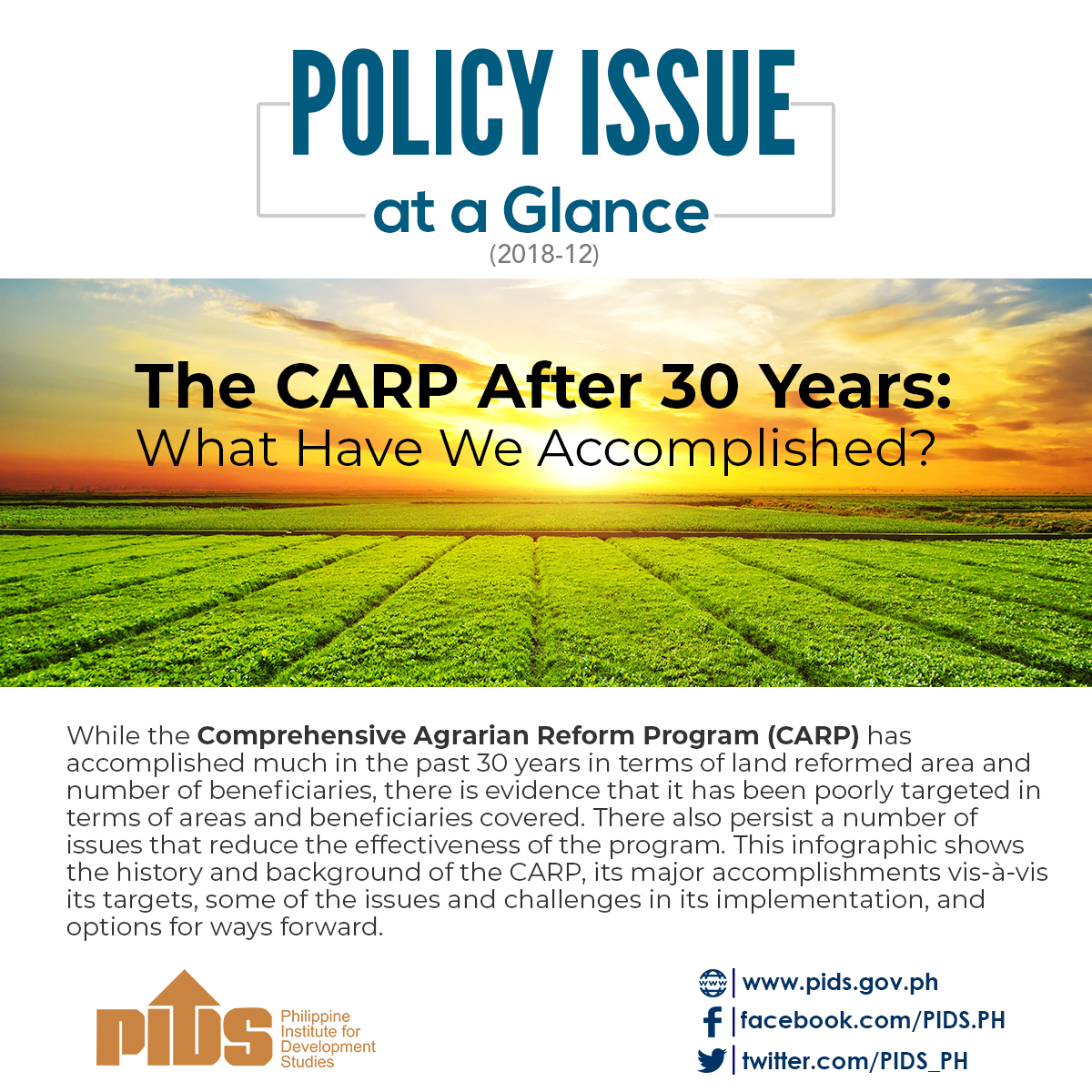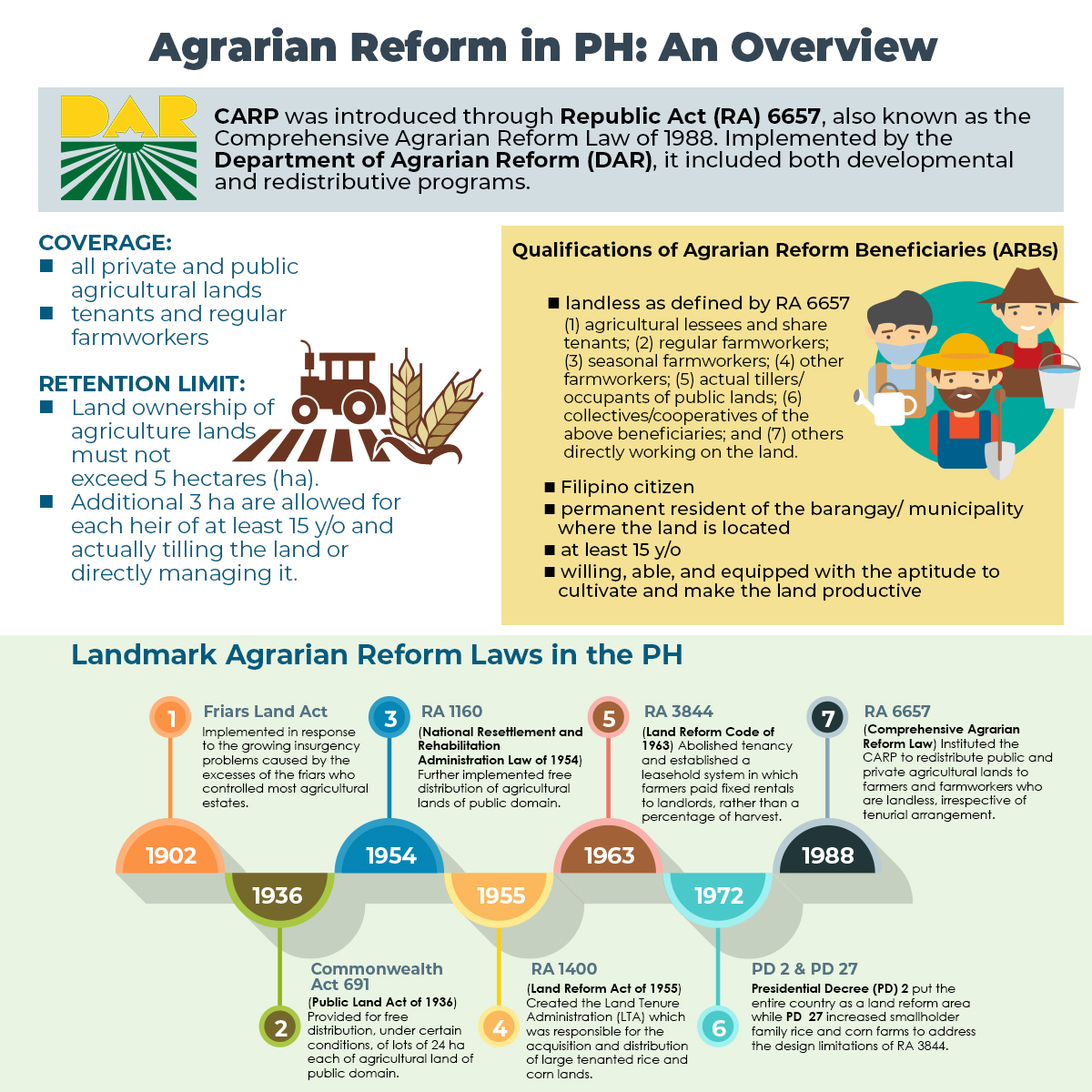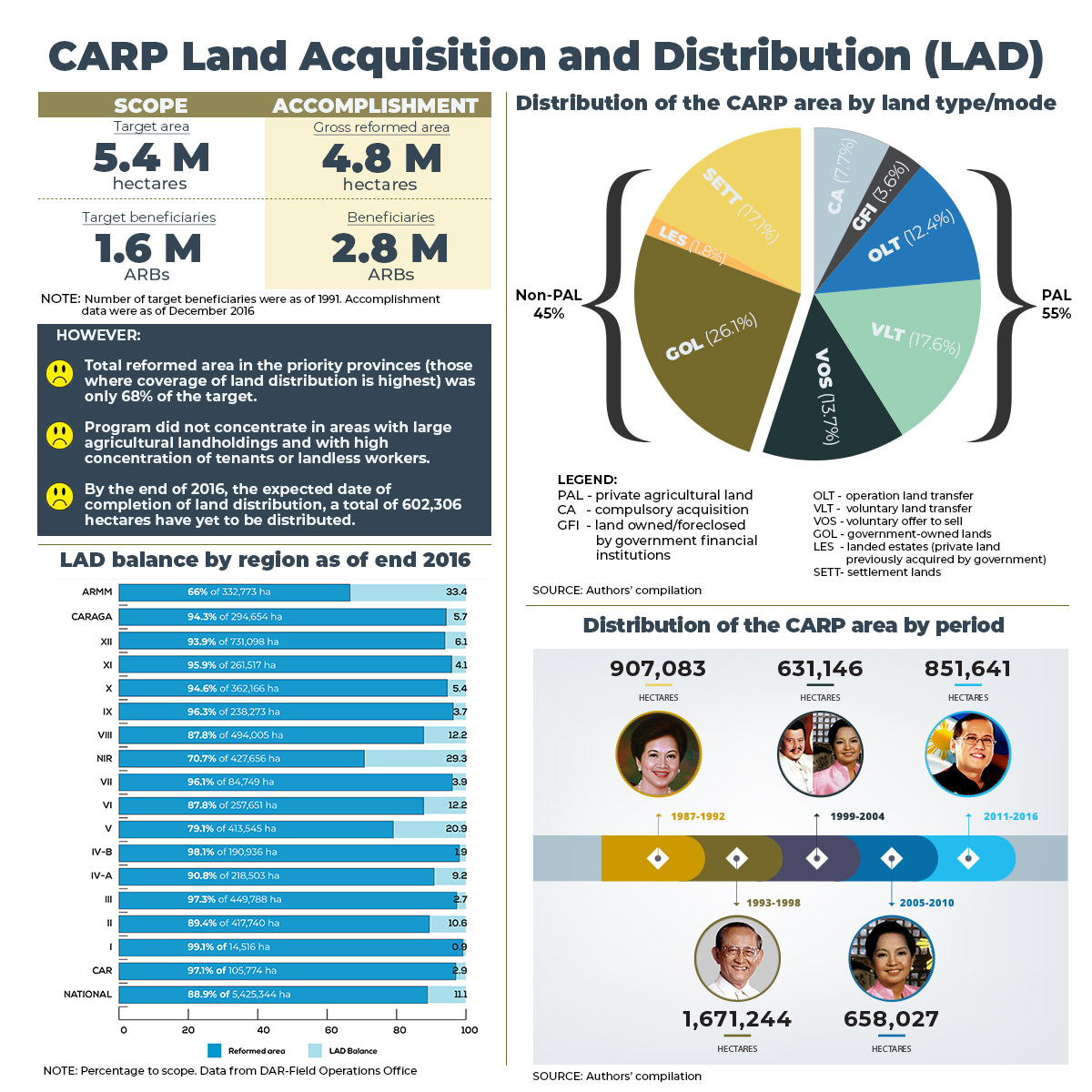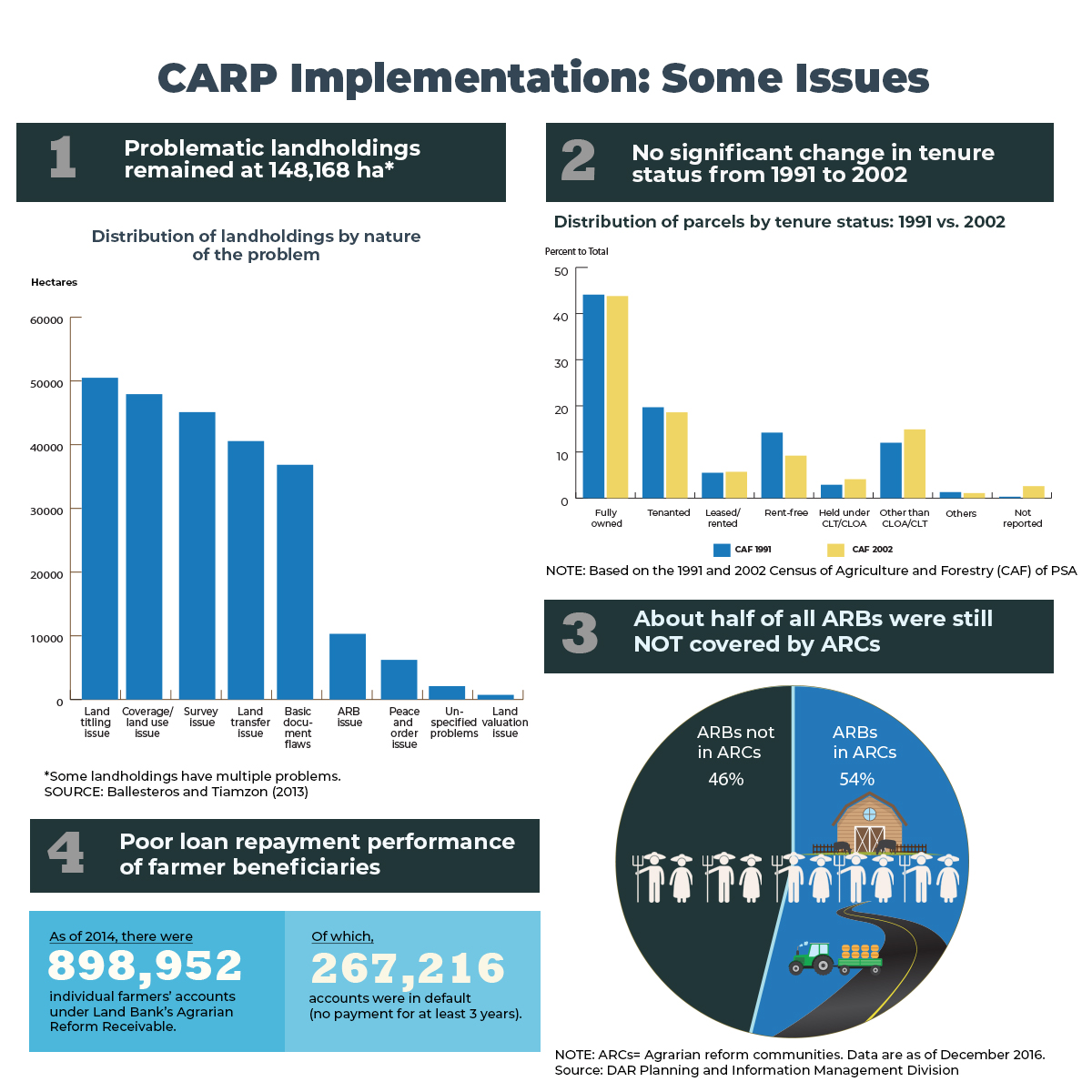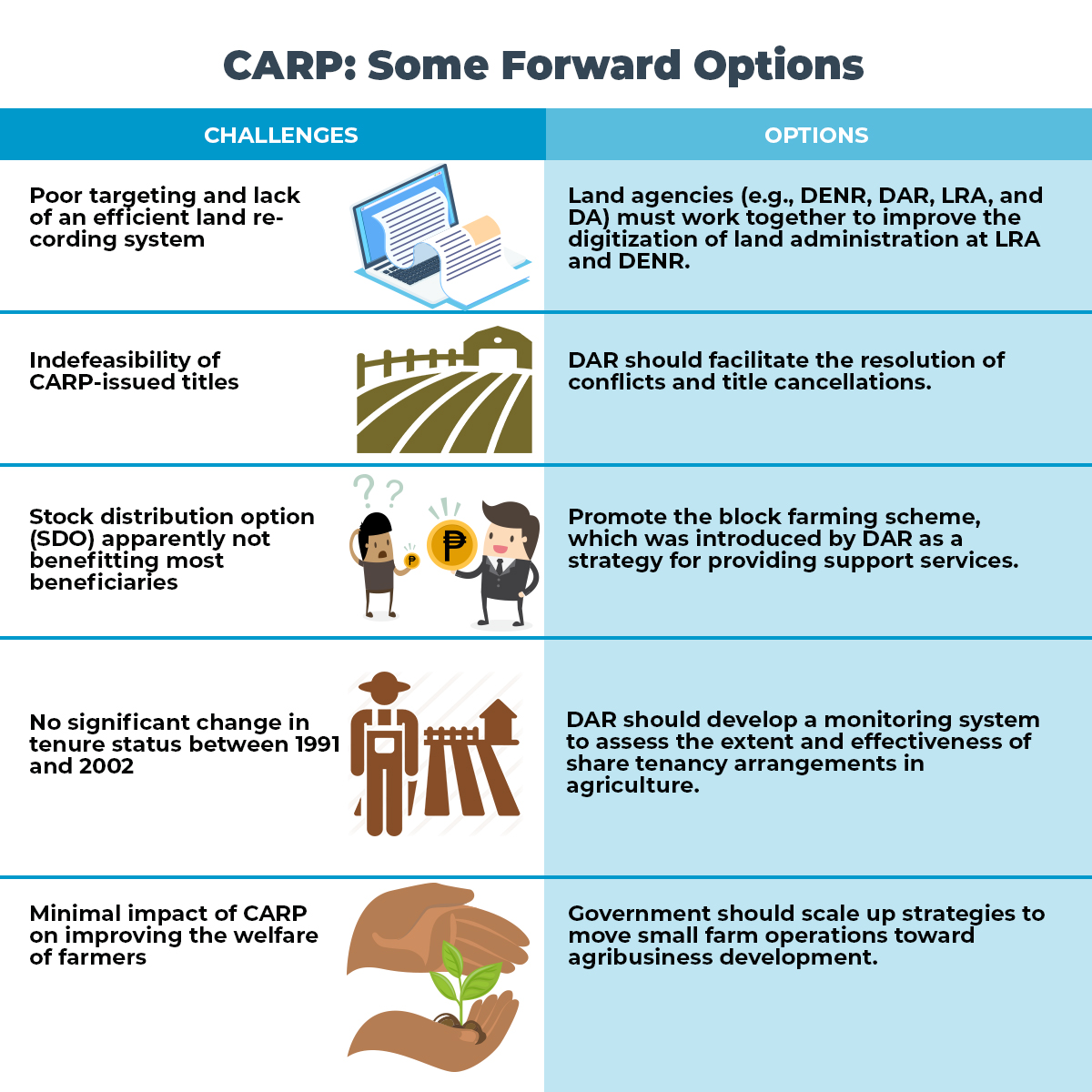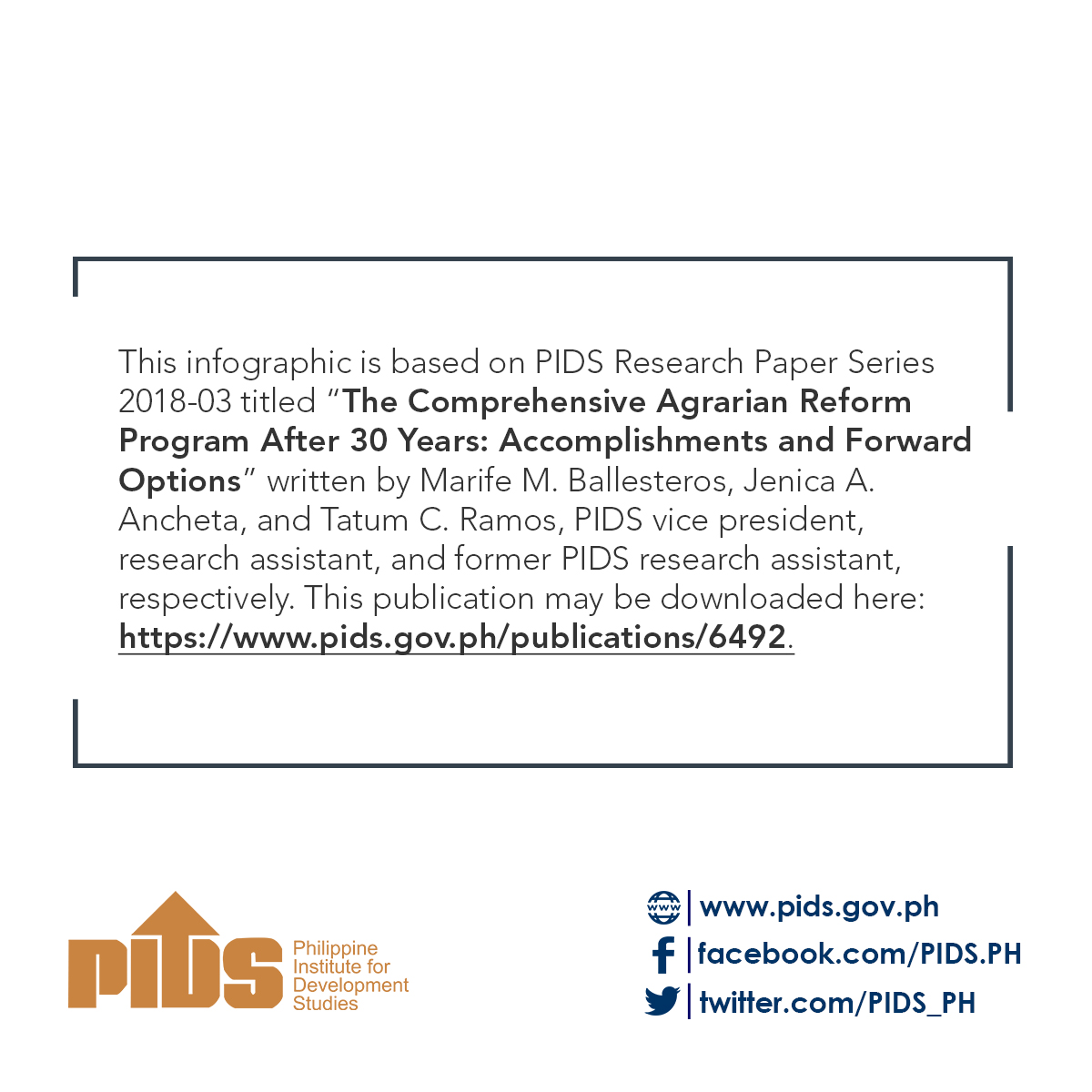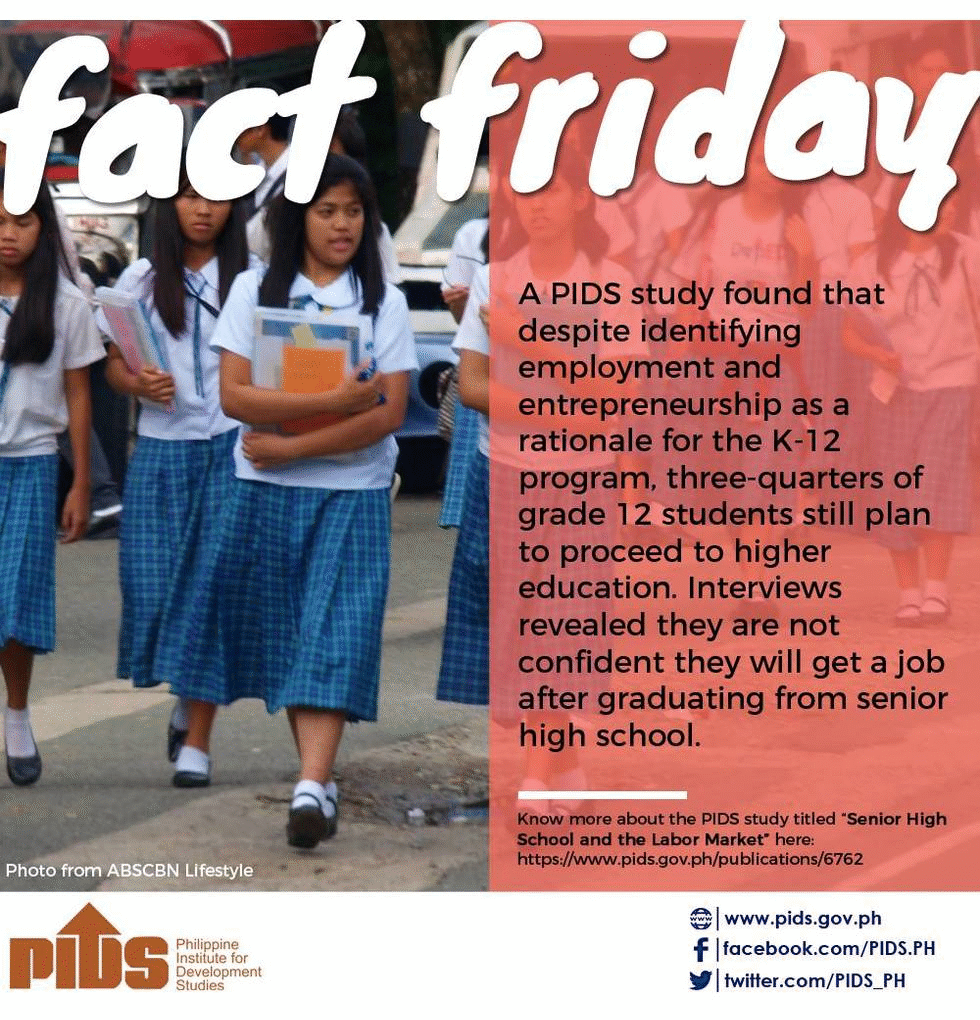Having trouble reading this email? View it in your browser. |
||||
 |
||||
|
||||
RESEARCH PAPER SERIES RPS 2018-04:
Sustainable Development Goal 5: How Does the Philippines Fare
POLICY NOTES PN 2018-20:
Boys Are Still Left Behind in Basic Education This Policy Note examines the extent of gender disparities in various education performance metrics, particularly the rate of out-of-school children (OOSC). It reveals that 2 in every 3 OOSC in the Philippines aged 5–15 years in 2017 were boys. Moreover, boys had lower likelihood of attending school compared to girls regardless of age range, except among kindergarten-age children. This study also finds that the lack of interest was their most commonly cited reason for leaving school, followed by high cost of education. Despite evidence about the difference in opportunity costs for schooling for boys and girls, especially at older ages, it discovers that no change was made to the current grants given under the conditional cash transfer (CCT) program. As such, it recommends that the Department of Education (DepED) work with the Department of Social Welfare and Development to study the possibility of increasing CCT allowances for boys, especially at a later age. It also urges DepED to diversify the teacher workforce to achieve balance between women and men teachers, which can also have long-term impacts on boys. Click here to download the paper. PN 2018-19:
The Philippine Electric Power Industry Under EPIRA The Electric Power Industry Reform Act (EPIRA) is one of the landmark promarket reforms implemented to achieve reliable and competitively priced electricity in the Philippines. This Policy Note revisits the achievements and concerns regarding the implementation of EPIRA in the country. Among others, it finds that the supply of electricity has been adequate to ensure consumers' continuous access to electricity since the passage of EPIRA. The country has also seen a generally declining electric price since its implementation. Nonetheless, the study still noted several issues pertaining to the implementation of EPIRA. These include the failure of the government to eliminate cross-subsidization and create a competitive electricity retail sector. With these concerns, it recommends a number of measures that should be in place to sustain the progress under EPIRA and promote more competitive power supply and retail rates for all consumers. For instance, it urges the Department of Energy to undertake generation mapping, as a policy and regular practice, and implement optimal decisionmaking on the location of the generation plants. The government should also consider reviewing the legislation on taxes on electric power and whether or not these can be gradually reduced or phased out. Click here to download the paper. PN 2018-18:
Defining and Profiling the Middle Class The middle class is crucial in society. With better educational attainment and savings, they hold critical roles in higher value-added sectors. They are also willing to pay for better-quality products and services, and their demands encourage investments in production and marketing, raising general income levels. This Policy Note profiles the Filipino middle class and examines how long it takes for the poor and low-income class to transition to middle-income class. Among others, it finds that less than half of Filipino households belong to middle class, who are generally urban dwellers. Although the middle-income class are employed in stable jobs outside agriculture, with household members working abroad, nonetheless, these do not make the middle class strongly resilient to risk as they also face issues in housing and low access to social services. The study likewise finds that, on average, it may take 18 years or even longer, in case of the poor, to transition to middle income. The study urges the government to reexamine its social protection policies and recognize that while the poor is most vulnerable to future poverty, even the middle class is vulnerable. It likewise calls for the improvement of access to affordable housing in the Philippines and sustainable management of safe water. Click here to download the paper. PN 2018-17:
Barriers and Bottlenecks to School Attendance: An Update This Policy Note describes the profile of out-of-school children (OOSC) in the Philippines. Among others, it finds that school attendance in the country remains largely an economic issue as more than half of OOSC come from low-income families. Attendance is likewise gendered, as 2 in every 3 OOSC were boys, some portion of which may be caused by the need to augment the family income. Across regions, the Autonomous Region in Muslim Mindanao posted the highest OOSC rate. To address these issues, this study urges the Department of Education to consider suggestions for addressing gender disparities in participation and performance of children. Possible supply-side interventions include policies on hiring more male teachers, subject to review, and diversifying teaching strategies to include activities that may reduce the learning deficit between sexes. It also argues that while the Pantawid Pamilyang Pilipino Program appears to have improved the schooling of children among poor families, the cash transfers seem not sufficient in addressing opportunity costs of schooling, especially as children age and as cost of living increases. Click here to download the paper.
DISCUSSION PAPERS DP 2018-54: Migrant Networks in the Context of Temporary Labor Migration DP 2018-53: Forest Protection in the Philippines DP 2018-52: Disaster Preparedness and Local Governance in the Philippines DP 2018-51: Scenarios for the Philippine Agri-Food System with and without Tariffication: Application of a CGE model with Endogenous Area Allocation DP 2018-50: Senior High School and the Labor Market: Perspectives of Grade 12 Students and Human Resource Officers DP 2018-49: Senior High School and the Labor Market: Perspectives of Grade 12 Students and Human Resource Officers DP 2018-48: Regulatory Measures Affecting Service Trade and Investment: DP 2018-47:
Benefit-Cost Analysis of the Resurgent Irrigation System Program DP 2018-46:
Economic Principles for Rightsizing Government DP 2018-45:
Child Stunting Prevention: The Challenge of Mobilizing Local Governments DP 2018-44:
Impact Evaluation Design for the CHED K to 12 Transition Program DP 2018-43:
Are We Missing Out on the Demographic Dividend? Trends and Prospects DP 2018-42:
Devolution of Health Services, Fiscal Decentralization, and Antenatal Care DP 2018-41:
Assessment of TRAIN's Coal and Petroleum Excise Taxes: DP 2018-40:
Regulatory Measures Affecting Services Trade and Investment: DP 2018-39:
Modelling Reality: A Short History of Selected DP 2018-38:
Answering Critical Questions on Mining in the Philippines DP 2018-37:
The Boracay Closure: Socioeconomic Consequences and Resilience Management DP 2018-36:
Health Devolution in the Philippines: Lessons and Insights DP 2018-35:
Social Protection for Men and Women in the Philippines: Some Insights DP 2018-34:
Non-Tariff Measures in the Philippines DP 2018-33:
Exploring Neural Network Models in Understanding Bilateral Trade in APEC: DP 2018-32:
When It Rains, It Pours? Analyzing the Rainfall Shocks-Poverty Nexus DP 2018-31:
A Public Expenditure Review of Social Protection Programs in the Philippines DP 2018-30:
Issues on Digital Trade DP 2018-29: Participatory Governance in the Public Provision of Housing: DP 2018-28: Learnings from the BUB: What Factors Determine the Level of Institutional DP 2018-27: Assessment of Republic Act 10963: The 2017 Tax Reform DP 2018-26: Poverty is Multidimensional: But Do We Really Need DP 2018-25: Out-of-School Children: Changing Landscape of School Attendance DP 2018-24: A Characteristic-Based Sorting Tool
for SLP Beneficiaries DP 2018-23: A Survey of Literature on Philippine Decentralization DP 2018-22: E-Finance in the Philippines: Status and Prospects for Digital Financial Inclusion
|
January 23, 2019, 8:30AM–4:30PM January 18, 2019, 9AM–5PM -----------------------------------------
The Philippine Journal of Development is a professional journal published by the Philippine Institute for Development Studies. It accepts papers that examine key issues in development and have strong relevance to policy development. As a multidisciplinary social science journal, it accepts papers in the fields of economics, political science, public administration, sociology, and other related disciplines. It considers papers that have strong policy implications on national or international concerns, particularly development issues in the Asia-Pacific region. CLICK HERE for the guidelines in the preparation of articles. Submissions and inquiries may be sent to PJD@mail.pids.gov.ph. |
|||
The Philippine government should favor soft laws over hard laws in regulating new business models emerging from the Fourth Industrial Revolution (FIRe). | ||||
POLICY ISSUE AT A GLANCE The CARP after 30 Years: What Have We Accomplished? While the Comprehensive Agrarian Reform Program (CARP) has accomplished much in the past 30 years in terms of land reformed area and number of beneficiaries, there is evidence that it has been poorly targeted in terms of areas and beneficiaries covered. There also persist a number of issues that reduce the effectiveness of the program. This infographic shows the history and background of the CARP, its major accomplishments vis-à-vis its targets, some of the issues and challenges in its implementation, and options for ways forward.
To view in actual size, visit the PIDS website or the PIDS Facebook page.
FACT FRIDAY Every Friday, PIDS releases nuggets of research results culled from different PIDS studies. Here are the latest #PIDSFactFriday issues. Like us on Facebook for more #PIDSFactFriday issues. |
||||
Need help? Have feedback? Feel free to contact us. © 2018 Philippine Institute for Development Studies.
|
||||
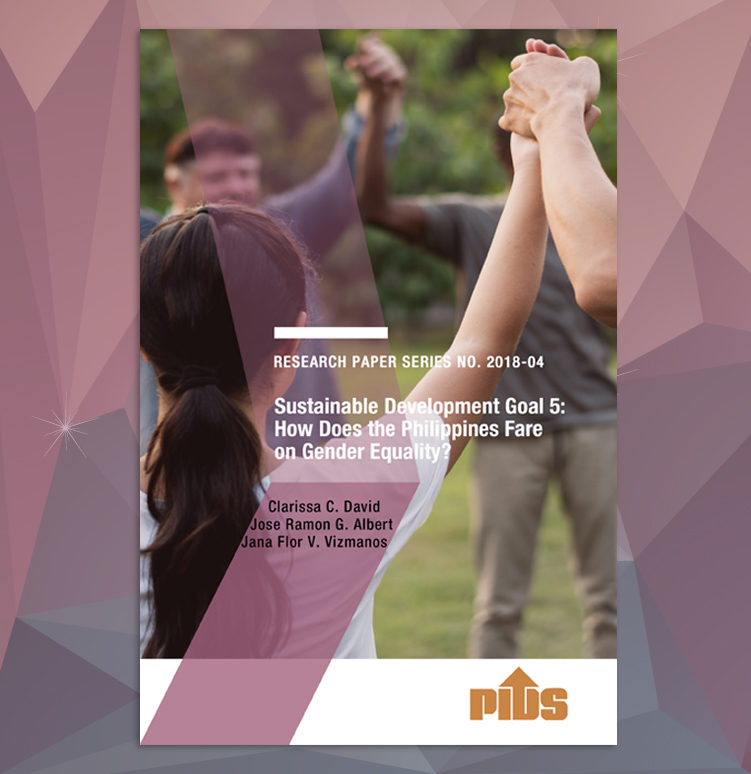 The global goal to attain gender equality, including ending all forms of discrimination against women and girls, and ensuring their safety, is central to the achievement of the Sustainable Development Goals. Its attainment means that every person, regardless of sex, is empowered to reach his or her full potential. This entails both men and women being given equal opportunities to education, paid employment, and real decision-making power, whether in the private or public sector. This paper discusses how the country fares in several gender and gender-related indicators that can be used to monitor progress toward gender equality and women empowerment. It provides an overview of the current situation in areas such as equality of human capabilities, equality of economic opportunity, equality in political voice and leadership, and the safety of women and girls. The paper also identifies priorities for public policy while seeking new directions in a number of transformational issues to attain gender equality and women's empowerment in the country.
The global goal to attain gender equality, including ending all forms of discrimination against women and girls, and ensuring their safety, is central to the achievement of the Sustainable Development Goals. Its attainment means that every person, regardless of sex, is empowered to reach his or her full potential. This entails both men and women being given equal opportunities to education, paid employment, and real decision-making power, whether in the private or public sector. This paper discusses how the country fares in several gender and gender-related indicators that can be used to monitor progress toward gender equality and women empowerment. It provides an overview of the current situation in areas such as equality of human capabilities, equality of economic opportunity, equality in political voice and leadership, and the safety of women and girls. The paper also identifies priorities for public policy while seeking new directions in a number of transformational issues to attain gender equality and women's empowerment in the country. .jpg)
